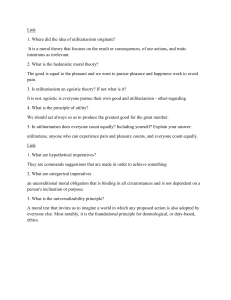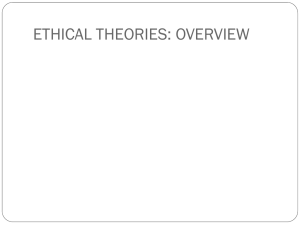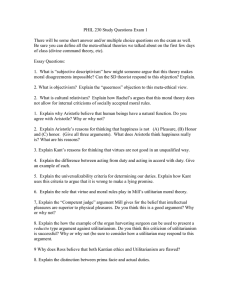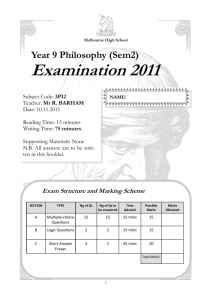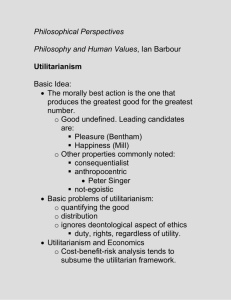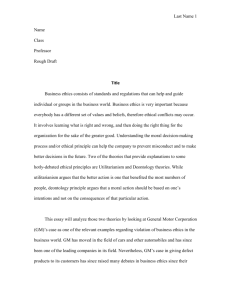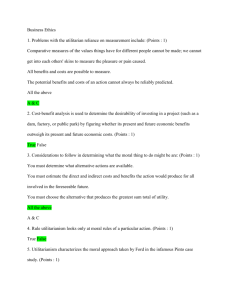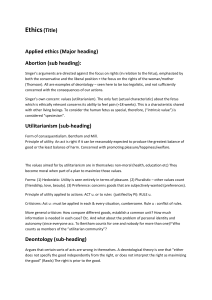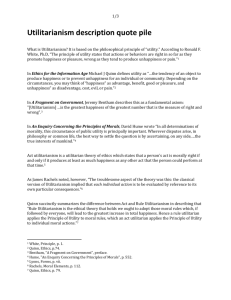Utilitarianism vs. Deontology: Key Questions & Concepts
advertisement
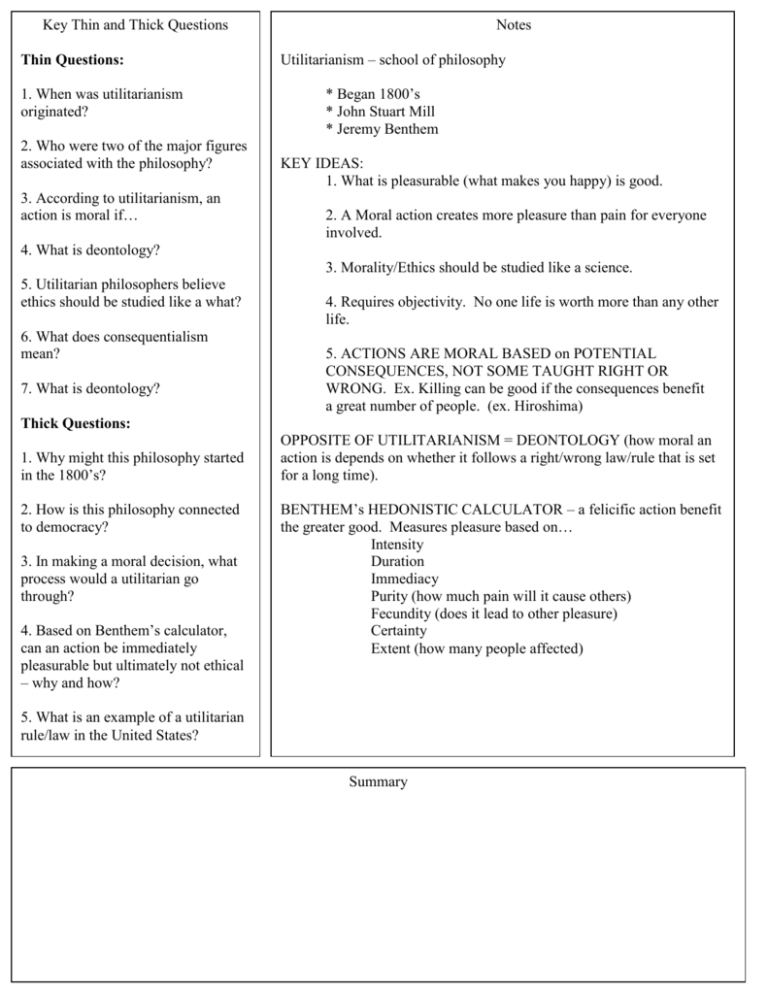
Key Thin and Thick Questions Thin Questions: 1. When was utilitarianism originated? 2. Who were two of the major figures associated with the philosophy? 3. According to utilitarianism, an action is moral if… Notes Utilitarianism – school of philosophy * Began 1800’s * John Stuart Mill * Jeremy Benthem KEY IDEAS: 1. What is pleasurable (what makes you happy) is good. 2. A Moral action creates more pleasure than pain for everyone involved. 4. What is deontology? 3. Morality/Ethics should be studied like a science. 5. Utilitarian philosophers believe ethics should be studied like a what? 6. What does consequentialism mean? 7. What is deontology? 4. Requires objectivity. No one life is worth more than any other life. 5. ACTIONS ARE MORAL BASED on POTENTIAL CONSEQUENCES, NOT SOME TAUGHT RIGHT OR WRONG. Ex. Killing can be good if the consequences benefit a great number of people. (ex. Hiroshima) Thick Questions: 1. Why might this philosophy started in the 1800’s? 2. How is this philosophy connected to democracy? 3. In making a moral decision, what process would a utilitarian go through? 4. Based on Benthem’s calculator, can an action be immediately pleasurable but ultimately not ethical – why and how? OPPOSITE OF UTILITARIANISM = DEONTOLOGY (how moral an action is depends on whether it follows a right/wrong law/rule that is set for a long time). BENTHEM’s HEDONISTIC CALCULATOR – a felicific action benefit the greater good. Measures pleasure based on… Intensity Duration Immediacy Purity (how much pain will it cause others) Fecundity (does it lead to other pleasure) Certainty Extent (how many people affected) 5. What is an example of a utilitarian rule/law in the United States? Summary

